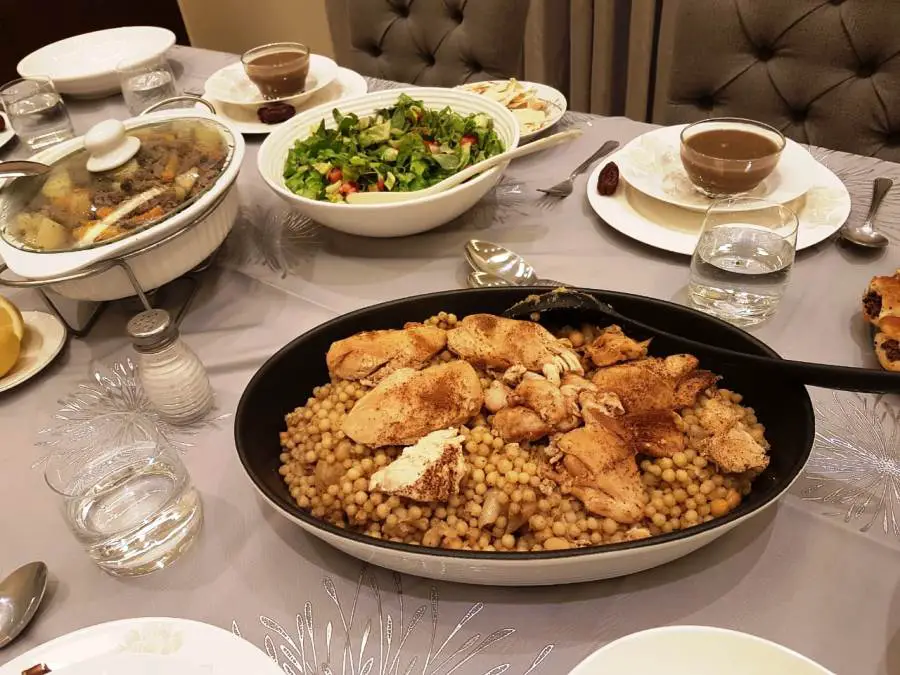In Islam, Ramadan is an integral part of every Muslim.
With it, comes the practising and perfection of patience, compassion and gratitude as well as deeper reflection of one’s spirituality.
The beauty of Ramadan is the day fasting, no mean feat though, but it revives a not so popular nutritional journey among Muslims. During Iftar when Muslims break their fast and Suhoor taken early in the morning a traditional culinary journey takes the driver’s seat.
Here is what happens:
During Iftar, 3 dates, known for their sweetness and high nutritional value start the feast every evening. Dates have high fibre content, iron, magnesium and sugar. It replenished the body’s blood sugars which may have gone low during fasting.

Dates. [Photo by Food Heritage.org]
Fattoush salad will always have a place in the Iftar table. It comprises fresh vegetables and topped with fresh bread and dressed with healthy olive oil and pomegranate molasses. It has high fibre content and is also loaded with vitamins and minerals needed by the body after a period of no eating during the day.

Salads of Ramadan. [Photo Food Heritage.org]

Traditional foods during Ramadan. [Photo by Food Heritage.org]
For the Sweet-toothed, how would Iftar be complete without sweets to calm the body down? Different varieties of sweets are prepared from dried fruits such as raisins, figs and apricots and are eaten after Iftar. They give the body a lot of fibre.
Read more:
History Of Knafeh, The Popular Traditional Ramadhan Dessert In Egypt
#seeafricatoday








